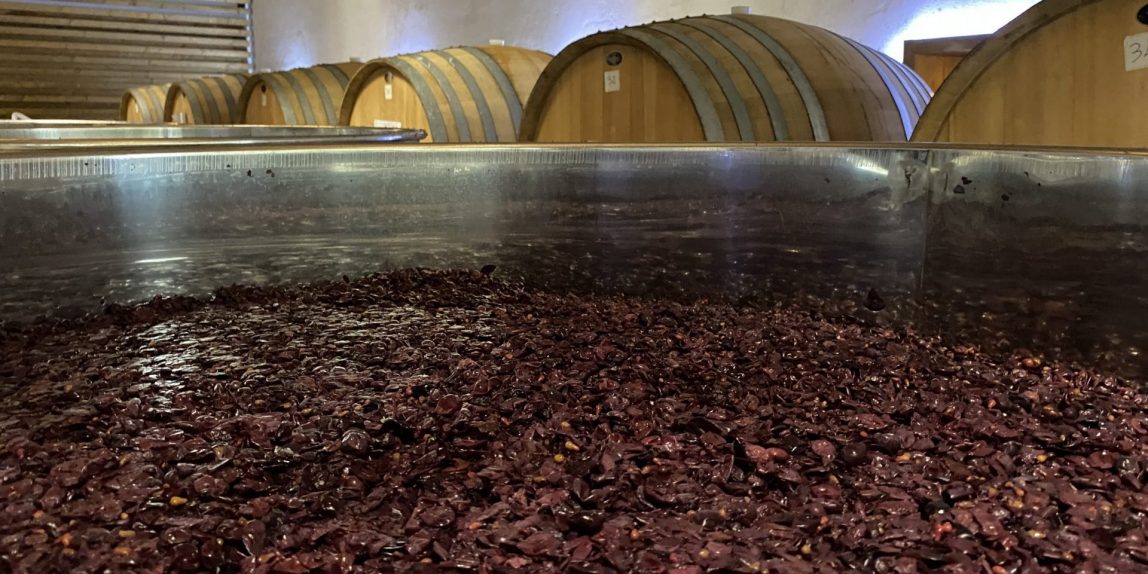This is the story of me becoming a believer in low intervention, and from shaping my way of thinking about wine.
When I arrived in Lazio, in a small town called Arce, after a 10 hour drive and carrying my luggage up the steps through medeval alleys to enter the agriturismo of Palazzo Tronconi that I had booked for 4 weeks, my first encounter with the host, Marco Marrocco, wasn‘t my best appearance. I almost fainted and had to throw up when he showed me my room. The drive was just too long and exhausting.
With a glass of water and the last blinks before going to bed, Marco turned out to also be the winemaker. And we agreed on breakfast at 7:00am as I was getting curious.
On the next morning I told Marco that my ambition for booking his agriturismo actually was to be on holidays and to recharge my batteries – and potentially learn more about winemaking. So I asked if I could help out a bit here and there. Fast forward, I took the weekends off but worked normal hours along with his staff. Besides that, I helped in the cellar, in the vineyards and the vegetable garden, ended up making pasta in the restaurant kitchen and became friends with his dog. But above all, Marco became my friend. And he changed my way of thinking about wine.
On the first day in the cellar he did ask me if I knew the difference between conventional, organic, biodynamic and natural wines. I don‘t want to bore anyone but for me they were mere differences in philosophy. I was stunned to learn that biodynamic winemaking does not have to be hocuspocus, and that organic winemaking can still be very far away from my idea of making wine only from grapes, nothing else.
Marco is passionate about sharing his ideas and knowledge. So we talked a lot, he let me join the weekly tastings with an experienced sommelier from the area. And he let me get my hands dirty.
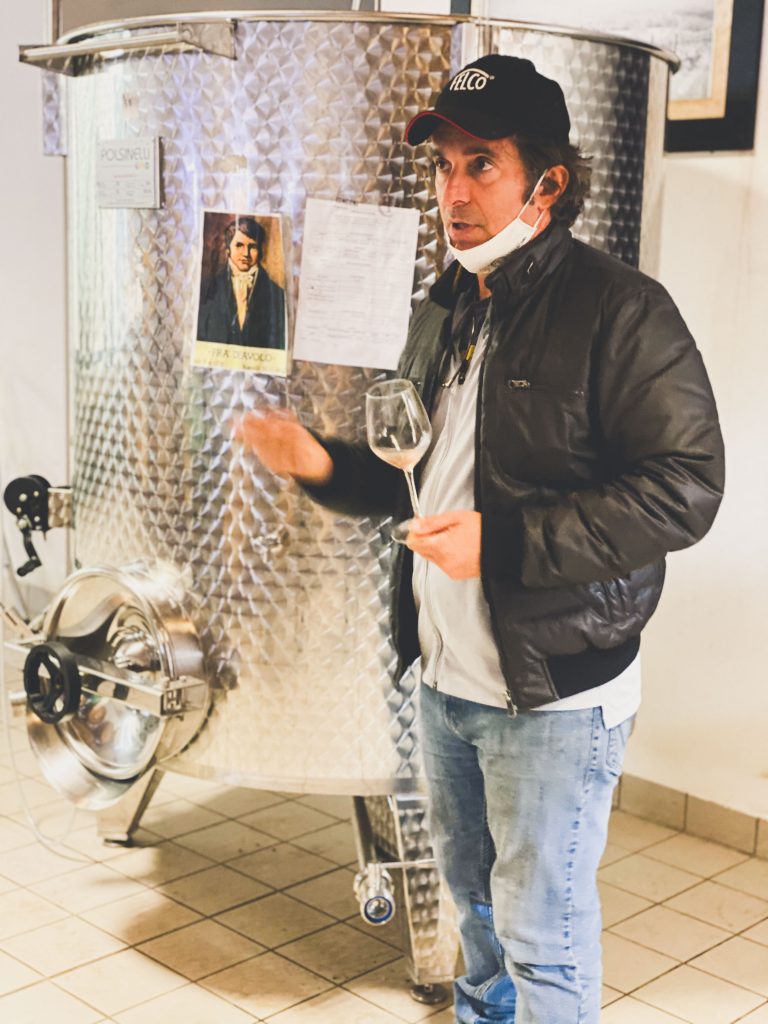
When Marco started the business himself, he was unexperienced and from a completely different industry-an elevator business that he thought to take over from his family. But he fell in love with the idea of making wine and studied. He bought land and went all in with a proper-size winery in the middle of Lazio, one hour south of Rome, where you see the mountains and feel the desire in people to go to the sea- but don‘t do it often. Here, in the middle of nowhere, he grows varieties that originate from the area and had almost been forgotten. With their beautiful names Pampanaro, Maturano, Capolongo, Olivello and Lecinaro, they remind of nothing- you wouldn‘t know what to expect from them. At the same time, Marco decided to go for sustainable approaches and to treat both his products and the land with maximum respect and quality appeal. So he started a biodynamic winemaking approach with completely unknown grape varieties in his early 30s. To add a little bit of safety, he also went for a small amount of Syrah and Sauvignon Blanc vines – as door openers for potential customers.
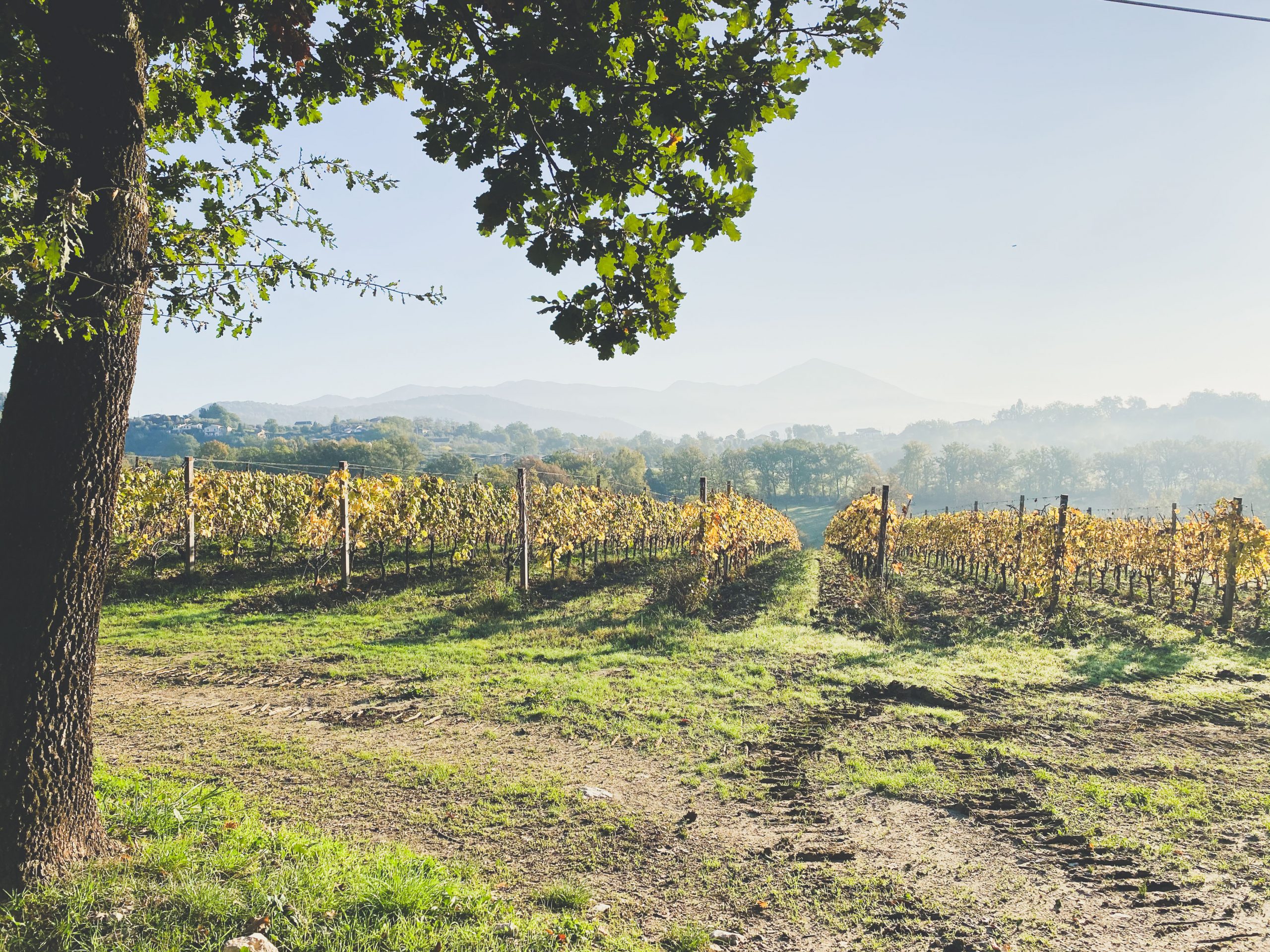
I think it goes without saying that Marco is a bit crazy. This is one of the reasons we get along so well. He is hardworking, curious, has high standards and is super empathetic. I think you can taste that in his wines.
He has now reached 14ha of land and almost 40.000 bottles in production each year.
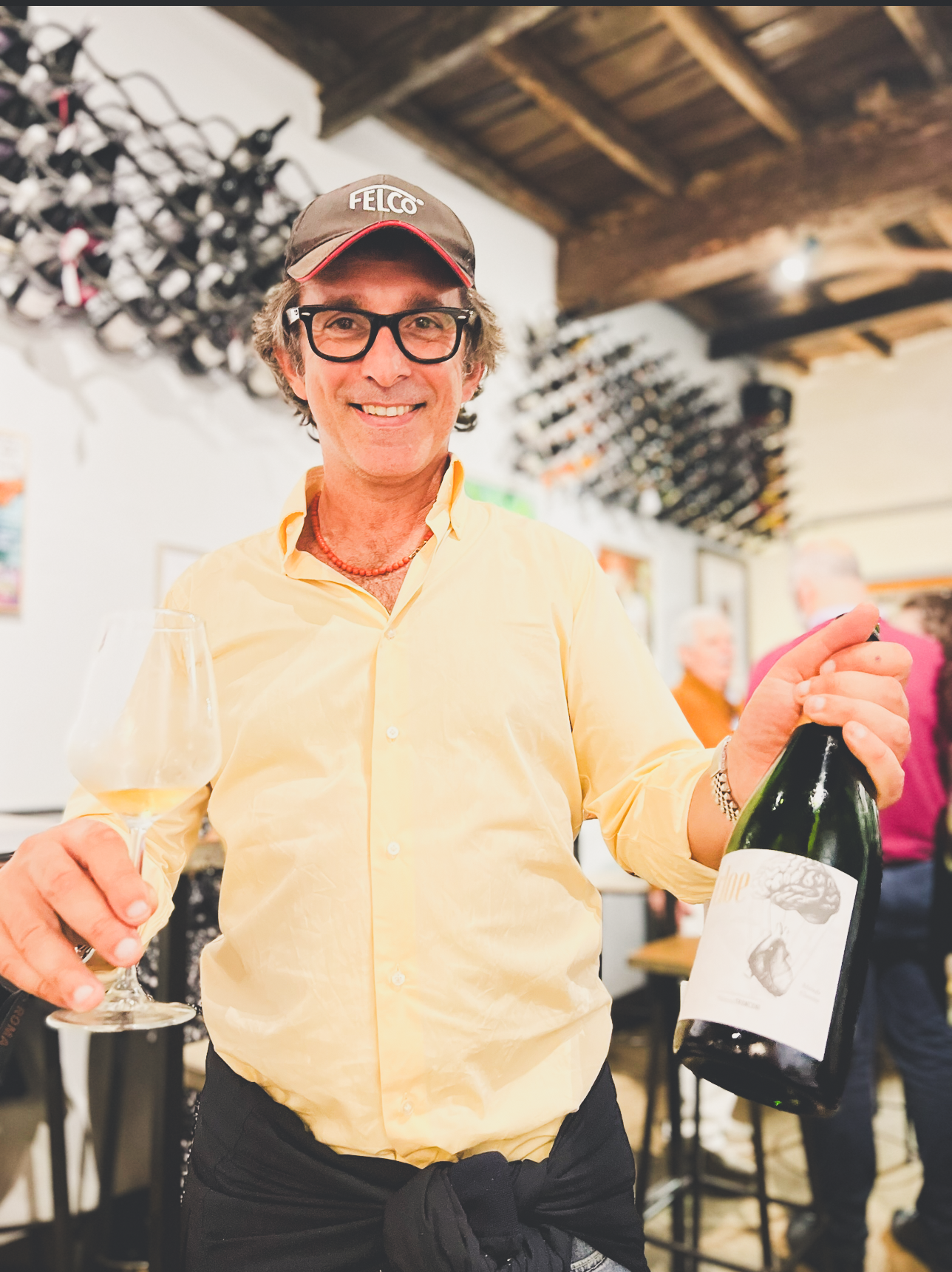
His metodo classico sparkling wine from 100% Lecinaro grapes is one of the best I have ever had.
The variety itself is the most fascinating I have worked with so far. Still light red if you let it macerate for days, peachy pink for rosé, and a super bright clear white if pressed directly. Its character reminds of pinot noir, with a delicate aroma profile that is moderate in tannins and slightly fruity, without ever being dramatic. No surprise it makes up the hero variety at Palazzo Tronconi now.
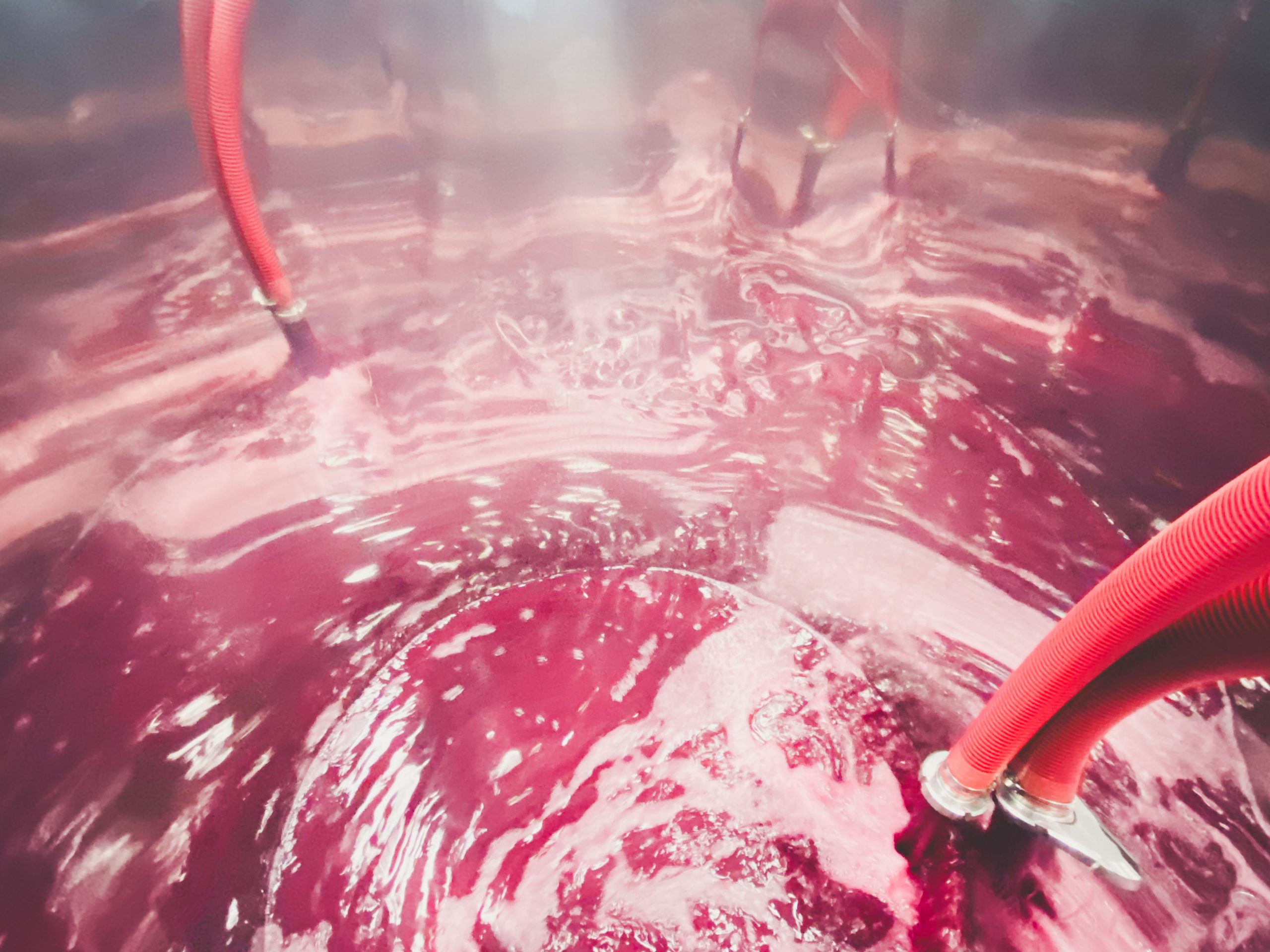
As I was in the middle of a chemistry class for my wine studies, Marco and I also had kitchen table talks about titratable acidity, about mercaptans, thiols and other stinky beasts in winemaking. I finally felt bad about the wine I brought as a gift for the agriturismo hosts – as it was all conventional but of course wine that I liked. He did not drink more than a sip as I talked him into it. A conviction to only drink low intervention wine cannot be overcome.
Marco‘s winemaking style is fruit-driven, to bring out the varietals‘ characters and bone dry with a sharp acid profile, also to keep his wines stabile as he adds minimal sulphur and follows methods that look more into careful handling of the wines than into additions and fining agents.
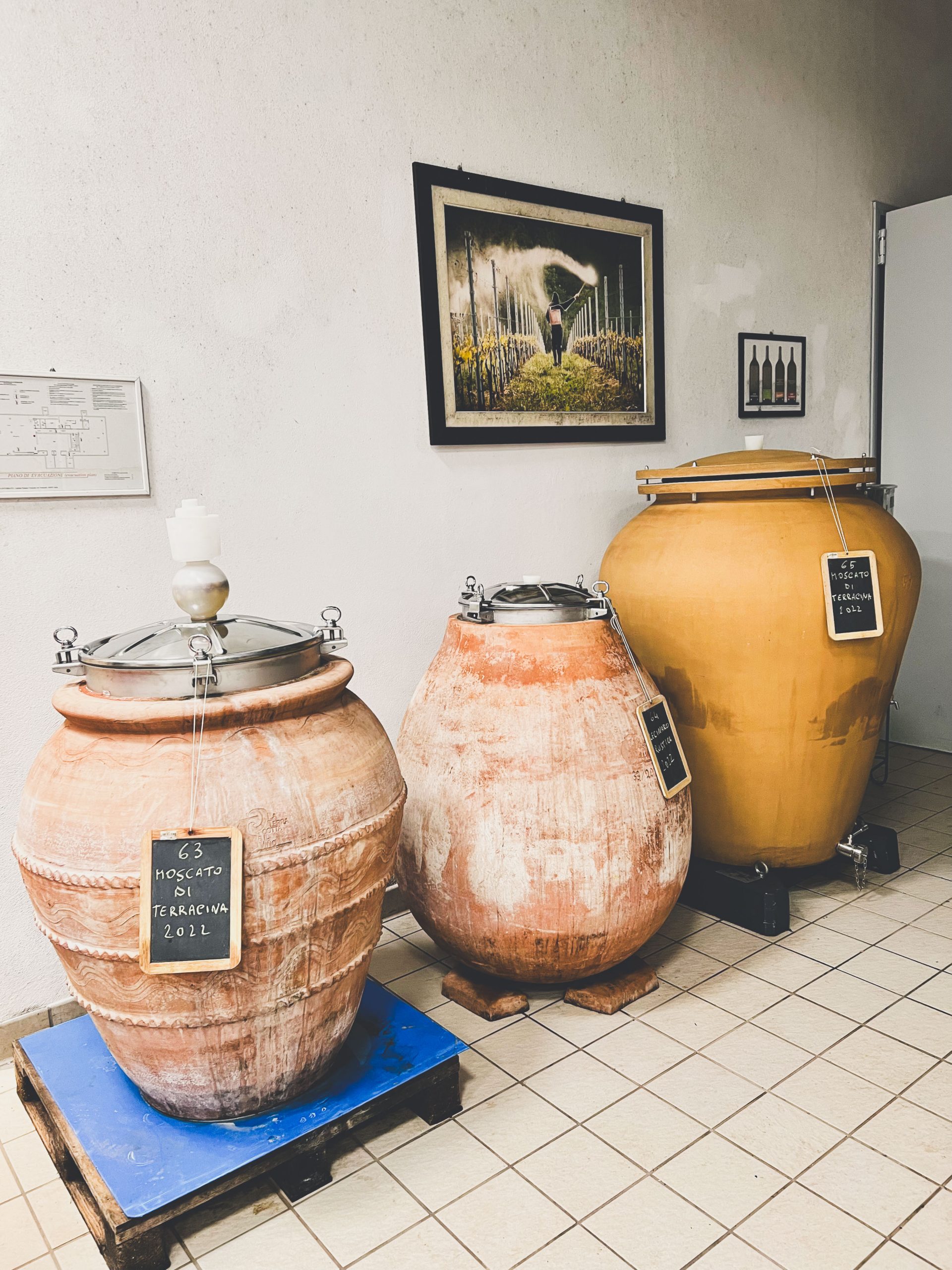
When Marco and I first parted, we were not sure if we would meet again (and I was so scared of the long drive then). Now, after we had organized an online Carbonara tasting, were on a motorbike ride through Roman night lights, hosted a tasting in San Francisco together, spent the evening with a bunch of Italians in a Berlin Kreuzberg osteria, and had dinner in the snowy mountains of South Tyrol, I’m excited to stay part of his adventures and am more than grateful for him turning my view on what I drink upside down.
